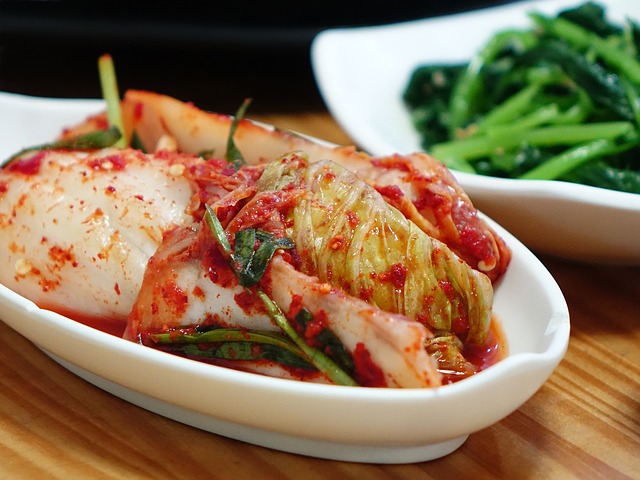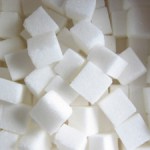-
- Take your health to the next level. Subscribe to our mailing list for your FREE eBook.“5 Ways to End Chronic Pain for Good!”

-
Latest Articles:
- • Add These 10 Immune-Boosting Foods to Your Fall Diet •
- • Keep Your Skin Healthy and Glowing with these Fall Skincare Tips •
- • Beat End of Year Burnout with these Fall Self-Care Rituals •
Hours
Monday8:30am - 4:30pmTuesday8:30am-4:30pmWednesday8:30am-4:30pmThursday8:30am-4:30pm
- Testimonials
“Dr Michele knows how to diagnose and heal you. She has a variety of methods she can utilize to work with your mind and body to produce the healthiest you!”
~ Carol Prokop. Also posted on Google Reviews!
I needed relief from chronic pain in my back, hips, and sciatic nerve. I have had these problems for a number of years. My doctors used physical therapy, and pain medication. I can no longer take anti-inflammatory medication. My acupuncture treatments have helped a lot. I can now relax, and I feel almost pain free. It has helped my attitude also. My activities have improved. Michele is a wonderful person, caring, compassionate, and an excellent acupuncture therapist!
C.T.
After two back surgeries, I was still having a great deal of pain. A friend told me acupuncture helped him with shoulder pain. I was a little skeptical but decided to give it a try. I didn’t want to stay on Percocet pain killers forever. After receiving acupuncture treatments, I was amazed how it helped with the pain. It isn’t gone but it is at least bearable. I only occasionally need to take a pain killer, and that is when
... Read more »A letter as copied to her doctor: Ms. Michele Arnold has been working with me since I begun experiencing hot flashes and has been able to manage them for me. I know it works because I took a five week hiatus from acupuncture treatments and experienced hot flashes so severe that I actually did not want to live. With four treatments I was back to feeling great with only a very occasional minimal hot flash. Acupuncture is relaxing and uplifting.
... Read more »Acupuncture has helped relieve so many symptoms, its hard to list them all. I have MS (multiple sclerosis) and acupuncture has helped with my vision, balance, and overall energy level. It also completely addressed the pain from a torn shoulder rotator cuff. Thank you Michele!
Wendy Harrison
Nutrition
Fermented Foods and Intestinal Health
 The modern world is changing every single day. Because of this constant state of change, our bodies are frequently having to adjust. We have a food supply being degraded and depleted of nutritional content, which in turn, causes our bodies to become depleted. Our soil and water is contaminated with antibiotics and deadly fertilizers. All of which become part of the food chain we rely upon. Because of this, antibiotics are failing and superbugs like MRSA are on the rise. Lack of nutrition and the overuse of antibiotics are just a couple of the things wreaking havoc on our intestinal health. But there are ways to combat this and keep the gut healthy. continue reading
The modern world is changing every single day. Because of this constant state of change, our bodies are frequently having to adjust. We have a food supply being degraded and depleted of nutritional content, which in turn, causes our bodies to become depleted. Our soil and water is contaminated with antibiotics and deadly fertilizers. All of which become part of the food chain we rely upon. Because of this, antibiotics are failing and superbugs like MRSA are on the rise. Lack of nutrition and the overuse of antibiotics are just a couple of the things wreaking havoc on our intestinal health. But there are ways to combat this and keep the gut healthy. continue reading
Ten Ways to Cut Sugar Cravings
 10 ways to cut Sugar Cravings
10 ways to cut Sugar Cravings
Sugar or glucose is our major life force needed for metabolic energy. Therefore, we need the sweet flavor in our diets. According to Chinese Medicine the whole foods that provide the sweet flavor as well as its beneficial properties are non-glutenous rice, legumes, sweet vegetables such as carrots, winter squash, sweet potatoes, fruit, and dates. The sugars in these foods are balanced with proper minerals.
The simple carbohydrates such as white granulated sugar, brown sugar, turbinado sugar, raw sugar, sucrose, fructose, dextrose, high fructose corn syrup, and agave (is highly processed with chemicals) are not recommended.
Other simple sugars such as maple sugar, rice syrup, unrefined cane juice powder, barley malt, black-strap molasses, malt sugar, raw unpasteurized honey may be eaten sparingly.
When sugars are refined and processed other minerals and naturally occurring enzymes as well as any healthful benefits are lost. Unfortunately, sugar can be addicting and contributes to disease and unhappiness. Many degenerative diseases have been attributed to sugar such as obesity, tooth decay, hypoglycemia, diabetes, high blood pressure, heart disease, anemia, immune deficiency, yeast infections, Candida, and bone loss.
Here are 10 ways to cut sugar cravings!
- Have a non-sweet breakfast containing a protein-rich food. Choose a whole grain or protein such as: eggs, lox, smoked fish, lean poultry sausage, soy products, beans, nuts or seeds. If you choose meats balance them with radishes, mushrooms, potatoes, or salads.
- Eat salty foods sparingly because they contribute to craving sweets. Salty foods may include sea salt, pickles, miso, soy sauce, meats, cheeses, or fish.
- Avoid excess raw fruits and vegetables and juice. Fruits, especially the juice are higher in sugars and leave your blood sugar low creating a desire for more sweets. They are also energetically cooling creating a desire for more warming foods such as sugar. A good rule of thumb for an appropriate proportion of your vegetables and fruits that are eaten cold, raw, or juiced is 5-10% of your daily fruits and veggies. Eat them mostly lightly cooked and warm.
- Eat green leafy vegetables daily, especially if chocolate cravings are a problem. Eat them mostly cooked and warm.
- Drink green tea daily. It helps maintain blood sugar levels, minimizing sugar cravings.
- Avoid artificial sweeteners. Your body responds as if they are actual sugars.
- Reduce or eliminate refined sugars such as, sucrose, fructose, fruit juice, commercial honey, and syrups.
- Get adequate full-spectrum lighting. Natural light is essential for the brain to produce serotonin. Serotonin is a calming brain chemical which can help reduce sugar cravings. Take a 20 minute walk, sit near a bright window, or use full-spectrum lighting in your work place.
- Include good fats with essential fatty acids such as, flax seed, pumpkin, hemp, fish oils, or avocado. Nuts and seeds are best purchased if they are in the shell, sprouted, or are unsalted, and lightly roasted. Raw shelled nuts go rancid quite easily and may harbor parasites.
- Try supplements of magnesium (350-500 mg) and chromium (200-500 meg). Minerals that help stabilize blood sugars. Or use herbs: fennel leaf, licorice root.
May your sweet tooth be satisfied!
Acupuncture: Not Just Needles
 Most people have heard of the field of acupuncture by now, but did you realize the scope of the practice encompasses Chinese medicine, which includes so much more than needles? Let’s explore this ancient therapy.
Most people have heard of the field of acupuncture by now, but did you realize the scope of the practice encompasses Chinese medicine, which includes so much more than needles? Let’s explore this ancient therapy.
First of all, the practice of Chinese medicine starts with a diagnosis. The practitioner asks many questions to build a history; this includes the answers to digestion, appetite, diet, sleep patterns, bowel movement urination, pain, lifestyle, and stress level, for example. The acupuncturist will also be noting the voice pitch, hair luster, skin color and tone, as well as posture and mood of the patient and any significant odor. After that, there is a pulse and tongue analysis to determine where the pattern and root are, primarily. Finally, blood pressure is measured and other applicable tests done, including palpation of the body. After this history, a diagnosis and treatment plan is determined. What might be included in this plan? continue reading
What Should I Eat to be Healthy
What to eat and what not to Eat: The Chinese Medicine Way to Healthy, Enjoyable Eating.

What should I eat to be healthy? That is a question I believe a lot of people are asking these days. If you are noticing signs of aging, are overweight, are considered obese, underweight, have diabetes, heart disease, auto-immune disorder, cancer, or you just plain want to stay healthy, you might be wondering which diet therapy is best for you.
I believe that a whole foods diet based mostly on plants, while taking into account individual needs, without all the processed foods, is the way to go. This is not a new way of eating, rather it is based on ancient Chinese Medical philosophy. The ancient way to eat for modern people.
In addition, mindfulness while eating plays an important part. One should eat in a calm and relaxed manner without rushing. Avoid stressful interactions during a meal, including television and reading. Be sure to always chew food thoroughly. Avoid overeating, or excessive fasting.
Foods to avoid are excessive raw, cold foods, iced drinks, excessive dairy, oily, greasy, fried foods, refined sugar, processed white flour products, excessive meat consumption, and excessive alcohol intake.
The process of digestion, and general nutritional requirements are the same, thus there are general guidelines to follow for a healthy spleen-Qi (chi)-digestive system. However, some people may have slightly different needs depending on their body type, lifestyle, climate, culture, or pattern of disharmony.
The general guidelines for a healthy spleen-Qi digestion will be explained in the next post. Stay tuned…
Foods for the Winter Season

Everybody knows that food is what gives our bodies the energy we need to survive. But not everybody is aware that certain foods should be consumed during specific times of the year. In areas like the Midwest, where fruits and vegetables are harder to keep on hand when the weather becomes colder, this principle is followed a little more closely. But in areas like Hawaii and Southern California, where fresh fruits and vegetables are always available and the climate is more moderate, people sometimes forget to eat according to the seasons. continue reading

